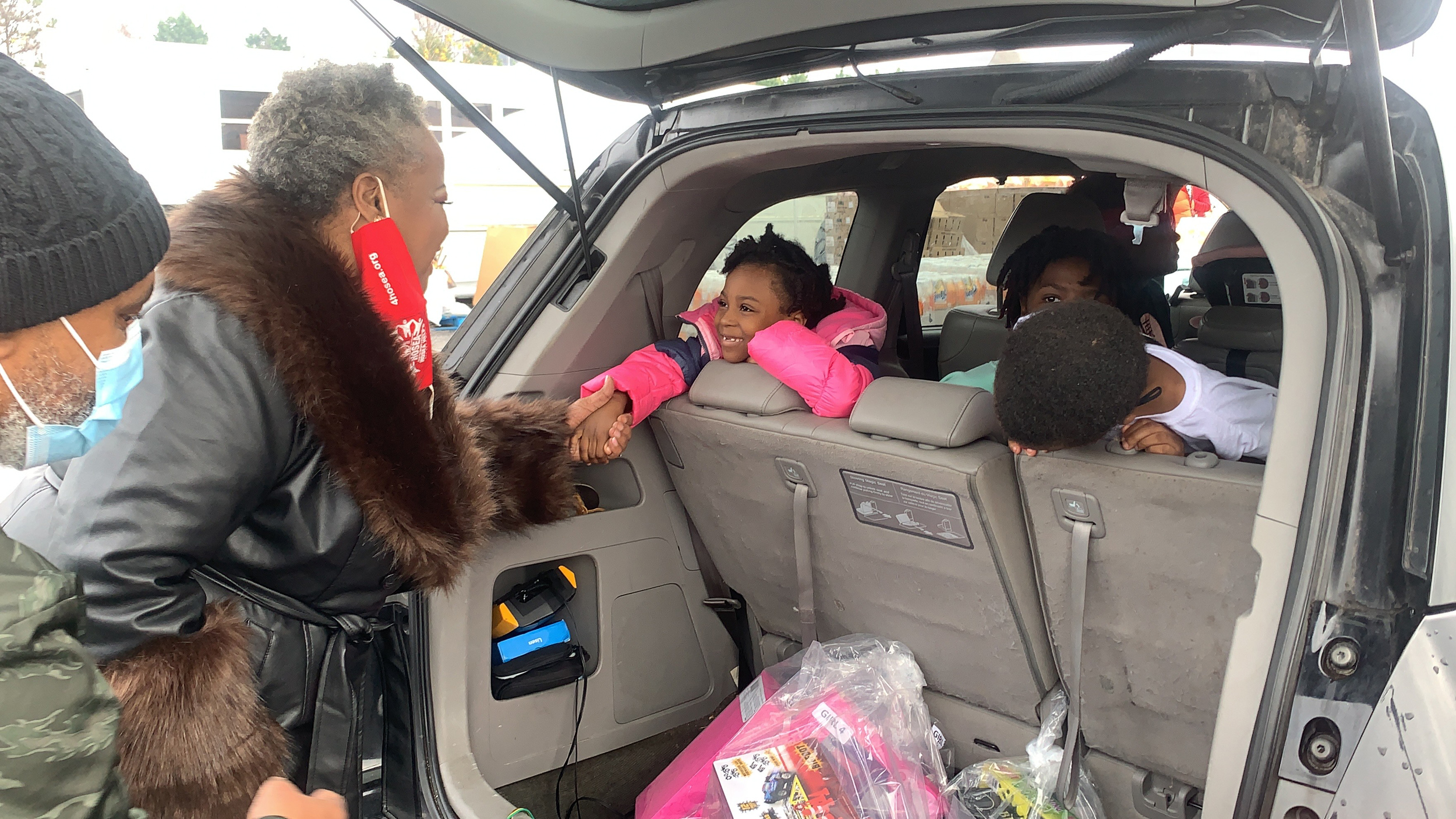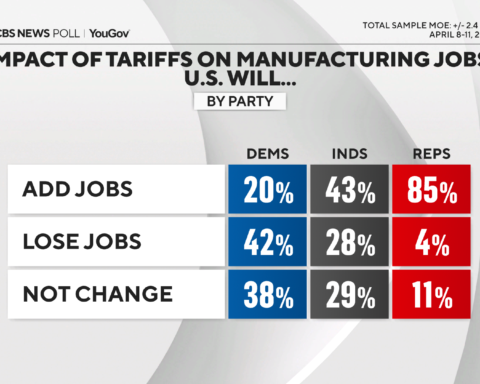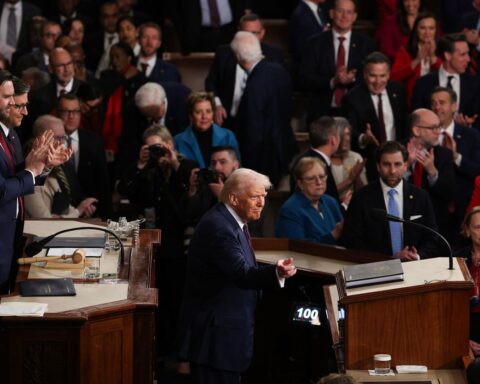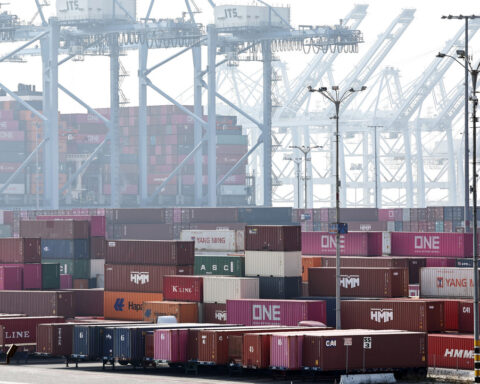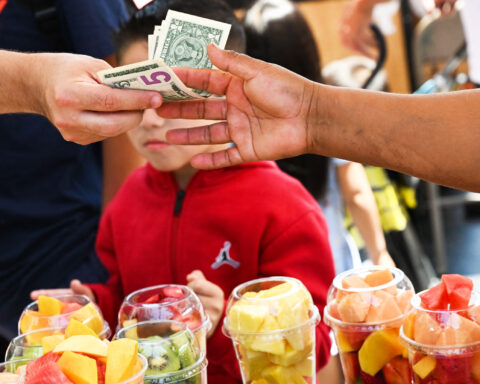Tanisha Boston has been feeling the effects of inflation, from the gas pump to the grocery store, for months. So in April, the 31-year-old Los Angeles resident shared her frustrations on social media, writing, “Please check on your LA friends, we are NOT okay!” under a photo of herself in front of a gas station charging $7 per gallon.
Boston said that soaring prices — coupled with recently losing a job — has meant she now relies on food stamps to get by. Even though she earns some income as a freelance wardrobe stylist and Instagram influencer, she said she’s looking for additional jobs to survive.
“I’m realizing that one income isn’t going to cut it,” she said.
According to a report by the U.S. Bureau of Labor Statistics, inflation reached 8.5 percent in March — the highest since 1981 — putting everyday necessities like food, fuel and rent out of reach for many. And like most economic downturns, including the Great Recession and the pandemic, Black communities are disproportionately impacted. This means that Black households are now spending more of their post-tax income on necessities like food and energy, according to a new Bank of America report cited by Business Insider.
Amid this financial crunch, activists and community leaders are stepping up their work around food security and affordable housing to meet new needs in the Black community.
Hosea Helps is a Black-owned nonprofit in Atlanta that distributes meals and provides other services including rental and utilities assistance. Elizabeth Omilami, chief executive of the group, said she’s seeing an increase in the number of people who now need food. Over Easter, more than 600 vehicles lined up for food during the organization’s food distribution program.
“The rent has increased so much that people don’t have a place to live,” Omilami said. “And the rise in food prices has caused our numbers of people asking for emergency food to almost triple.”
Omilami’s father, civil rights activist Hosea Williams, founded Hosea Helps in 1971 serving 100 meals per week to homeless people. Now, the organization offers food to more than 50,000 people per year. The group works with the local farmers markets to provide fresh produce to those who can’t afford it, provides healthy meals to children in schools, and also partners with a hotel to provide people a place to stay until they secure permanent housing.
William Darity Jr., professor of public policy, African American Studies and economics at Duke University, said the underlying reason why inflation is so harmful to Black communities is the wealth gap. According to Darity, white households have more than $800,000 more in net worth than Black households.
“One of the key indicators of this is the virtually permanent two-to-one ratio in unemployment rates between Blacks and whites in the United States, which I view as a prime index of the degree of discrimination in American labor markets,” Darity said.
Denise Jordan, a retired homemaker in Fort Wayne, Indiana, is using her popular YouTube channel “This and That With Denise Jordan” to offer tips on how to make do with less when prices at the store are soaring. In one video, she advises viewers to limit purchases to generic, store brand items and to try growing produce in a home garden.
“When I began to see food prices rise in the grocery stores, it just made me think, ‘OK, you need to really do this,’” she said.
Growing gardens is one solution that Anthony Beckford, leader of Brooklyn’s Black Lives Matter chapter, has also adopted. He said that food prices were high even before inflation, but now prices are causing many to choose between paying rent and putting food on the table.
Once they acquire the necessary funding, the organization aims to open two community gardens where residents can harvest fresh produce free of charge. Beckford said that healthy and organic food at chain supermarkets is often more expensive, and with the current inflation, this particularly hurts communities of color.
“When you look at a lot of the food that our community gets, one, most of the food is not fresh as is,” Beckford said. “It’s like we get the bottom of the barrel type, but yet we get charged way more than many other communities get charged for food items.”
In addition, Beckford said he is advocating for New York City to decrease transportation costs by supporting programs like Fair Fares NYC, an initiative that saves commuters up to $200 per month on subway costs. Other efforts include a ride share group to provide affordable rides and livable wages to drivers, he added.
“If food prices continue to rise … there’s going to be a lot of families out there going hungry,” Beckford said.
Boston, meanwhile, said the situation is something that she will just have to adjust to.
“There is no choice, I will say, for me, when there’s a low amount of jobs available, low amount of pay being available,” Boston said, “there’s only so much we can do besides trying to result to different streams of income.”

